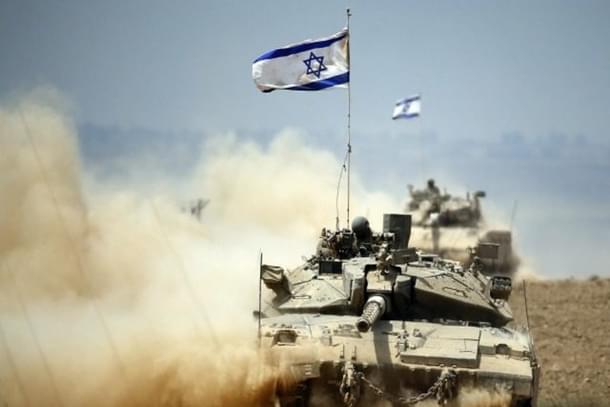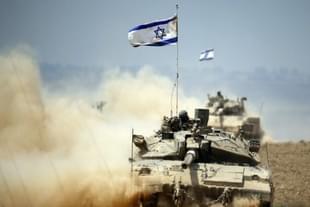News Brief
Israel Ceasefire Deal Divided In Two Phases: Here's How Hostage Swaps And Troop Pullbacks Are Planned In Gaza
Vansh Gupta
Jan 18, 2025, 02:58 PM | Updated 02:58 PM IST
Save & read from anywhere!
Bookmark stories for easy access on any device or the Swarajya app.


The Israeli government, with mediation from Qatar and Egypt and close involvement from US officials, has accepted a truce deal aimed at ending the ongoing conflict that started with the 7 October 2023, Hamas attack on Israel. The agreement outlines two distinct phases, each focusing on specific objectives and steps. Here's what they are:-
Phase 1: Hostage and Prisoner Exchange Underway
The first phase of the truce deal, set to last 42 days, focuses on the exchange of hostages held by Hamas and prisoners in Israeli custody.
According to Qatari Prime Minister Sheikh Mohammed bin Abdulrahman Al-Thani, Hamas will release 33 hostages, including "civilian women and female recruits, as well as children, elderly people...civilian ill people and wounded."
Among the first to be freed are reportedly three Israeli women soldiers, with the release scheduled for Sunday evening.
In return, Israel has agreed to release 737 prisoners and detainees, including men, women, and children. The exchange process involves three designated points—Kerem Shalom, Erez, and Reim—where hostages will undergo medical and mental health evaluations before being transported to hospitals in Israel via helicopters or vehicles.
To facilitate the exchange, Israeli forces will temporarily withdraw from densely populated areas in Gaza while maintaining a buffer zone within the region.
This buffer zone will extend up to 800 meters from Rafah in the south to Beit Hanun in the north. However, residents will not be permitted to return to areas near the Israel-Gaza border or where Israeli troops are still present.
While the ceasefire allows for limited movements, Israeli officials clarified that full troop withdrawal would only occur once all hostages are safely returned.
Displaced Palestinians will be allowed to return through electronic checkpoints equipped with surveillance cameras to ensure security during this phase.
Phase 2: Negotiations Toward a Permanent Ceasefire
Negotiations for the second phase of the truce are set to begin on the 16th day of the first phase. This phase aims to secure the release of all remaining hostages still alive. US President Joe Biden has emphasised that this phase would bring about a “permanent end to the war,” paving the way for Israel's full military withdrawal from Gaza.
Qatar, Egypt, and the United States, the mediators of the deal, will closely monitor the progress of the truce through a special body established in Cairo.
Qatari PM Sheikh Mohammed expressed hope that this agreement would mark the final chapter of the conflict, urging all parties to adhere to the deal’s terms for lasting peace.
The second phase represents a critical juncture in the ceasefire agreement, focusing on long-term stability and addressing the humanitarian crisis caused by the conflict. The involvement of international mediators underscores the significance of the agreement in shaping the region’s future.
Vansh Gupta is an Editorial Associate at Swarajya.




